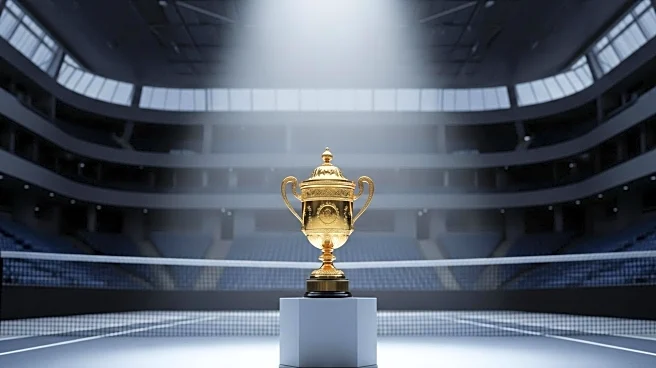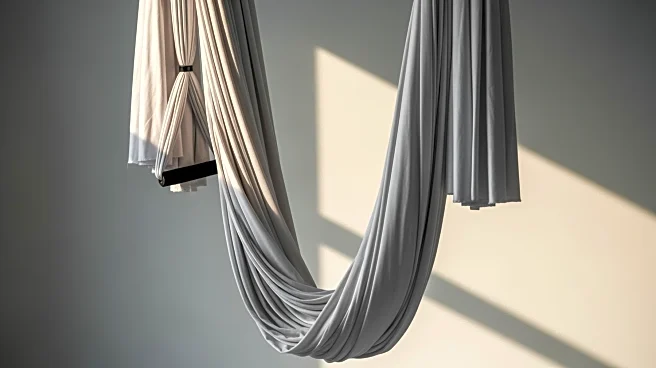What's Happening?
President Trump is attending the US Open as a guest of Rolex, despite recent tensions due to his administration's imposition of a 39% tariff on Swiss products. This move has raised questions about Switzerland's competitive standing against the European Union. Trump's presence at the event, where he will watch the men's final between Carlos Alcaraz and Jannik Sinner from Rolex's suite, is part of his strategy to attend major sports events rather than traditional political engagements. The U.S. Tennis Association has stated that any negative reactions from the audience will not be shown on the national telecast, following their standard policy to avoid showcasing off-court disruptions.
Why It's Important?
The attendance of President Trump at the US Open highlights the intersection of politics and sports, as well as the potential implications of his administration's foreign policy decisions on international relations. The high tariffs on Swiss products could strain economic ties and affect trade dynamics between the U.S. and Switzerland. Additionally, Trump's presence at such events underscores his approach to public appearances, focusing on high-profile sports events rather than policy-driven engagements. This strategy may influence public perception and media coverage of his presidency, particularly in how it balances political and personal interests.
What's Next?
The broader implications of Trump's attendance at the US Open and the imposed tariffs on Swiss products may unfold in the coming months. Stakeholders in the Swiss economy and U.S. trade partners will likely monitor the situation closely, assessing the impact on bilateral trade relations. Additionally, Trump's continued presence at major sports events could shape his public image and influence his political strategy as he navigates his second term. The response from the public and media to his appearances will be crucial in determining the effectiveness of this approach.
Beyond the Headlines
The decision to attend the US Open as a guest of Rolex, despite the tariff controversy, raises questions about the ethical considerations of a sitting president accepting corporate invitations. This situation highlights the potential conflicts of interest that can arise when political leaders engage with private sector entities. The broader cultural implications of Trump's attendance at sports events, particularly in terms of public reception and media portrayal, may also reflect deeper societal divisions and attitudes towards his presidency.












